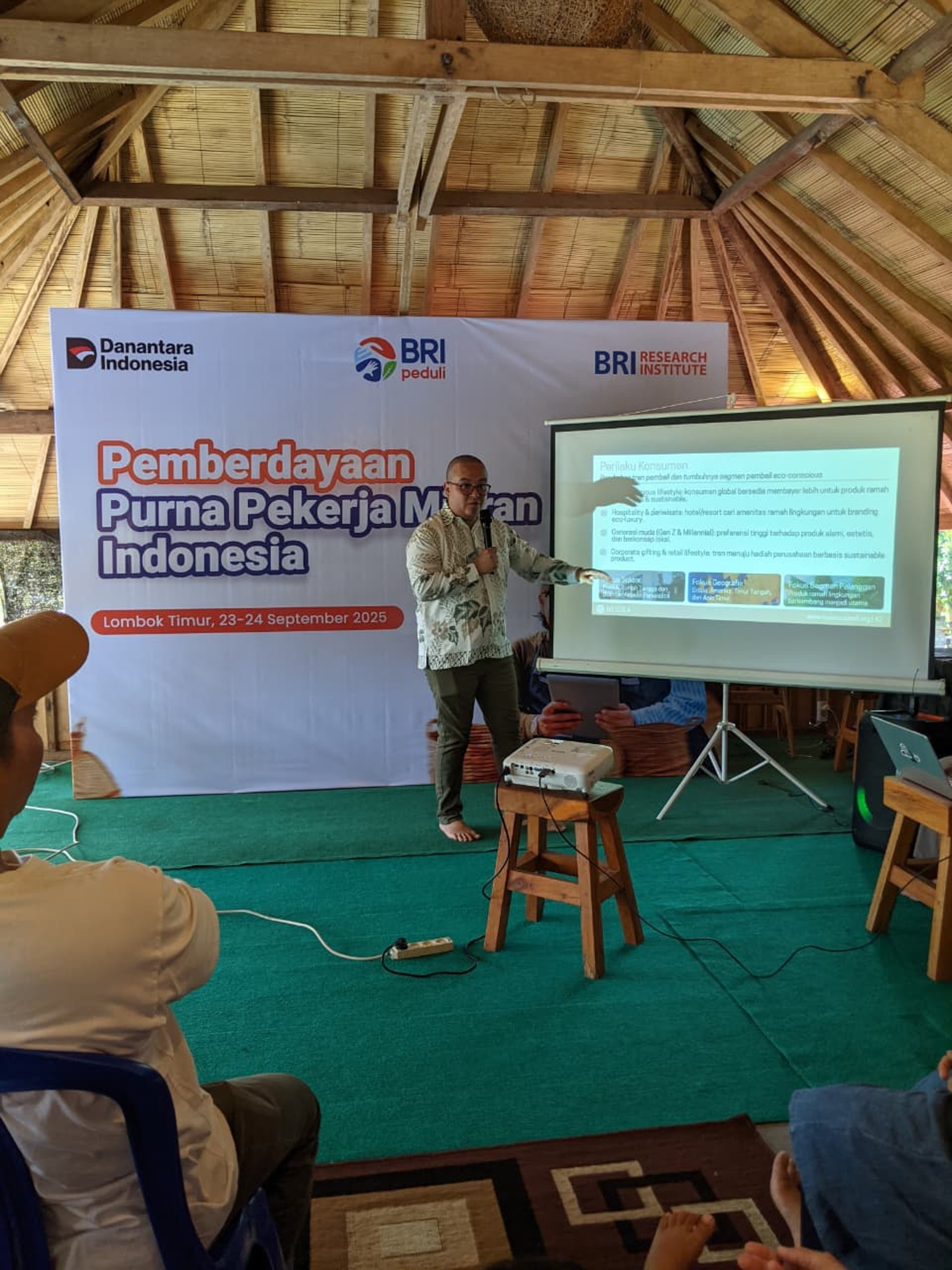Unlocking Lombok’s Bamboo Future: A Sharing Session with Former Migrant Workers
IMPACTSEVENTSTOURISM AND CREATIVE ECONOMY

NusraPress
Nusra Economic Council Press AI
In a Sharing Session Hosted by Danantara's BRI Research Institute and BRI Peduli, Nusra Economic Council Founder Diemas Sukma Hawkins explored opportunities in Lombok's Bamboo sector in Loyok with former migrant workers.
Unlocking Lombok’s Bamboo Future: A Sharing Session with Former Migrant Workers
In a recent sharing session hosted by Danantara’s BRI Research Institute and BRI Peduli, the spotlight turned to the untapped potential of Lombok’s bamboo sector. The event brought together community members in Loyok, East Lombok—a village long known for its bamboo handicraft traditions—with Diemas Sukma Hawkins, Founder of the Nusra Economic Council, to discuss how bamboo could become a driver of sustainable livelihoods and regional development.
Loyok has for decades been recognized as one of Indonesia’s centers of bamboo craftsmanship, producing baskets, furniture, and decorative items that find their way into both local markets and tourist destinations. Yet many of its artisans face challenges in scaling production, improving design, and connecting to modern markets. For former migrant workers returning to Lombok after years abroad, bamboo presents an avenue not only for income but also for preserving local heritage while tapping into rising global demand for eco-friendly products.
During the session, Diemas Sukma Hawkins emphasized that bamboo is no longer just a traditional craft material, but part of a rapidly growing global industry projected to exceed USD 90 billion by 2030. He explained how bamboo applications now extend far beyond handicrafts to include green construction, engineered products, consumer goods, textiles, packaging, and furniture. Indonesia, with its vast bamboo resources and cultural heritage, is uniquely placed to capture this opportunity if it invests in modern supply chains and sustainable cultivation.
The discussion highlighted three main opportunities for Loyok and East Lombok. First, strengthening artisanal bamboo crafts for premium lifestyle, hospitality, and tourism markets, where design-driven products can command higher margins. Second, developing mass-market production that can meet domestic and export demand for affordable utility goods. And third, exploring project-based solutions such as bamboo for resort construction, architectural design, and eco-tourism infrastructure.
For the former migrant workers present, many of whom had acquired skills, savings, and global exposure during their time abroad, bamboo offers a pathway to reintegrate into local economies while creating sustainable businesses. By blending traditional craftsmanship with modern entrepreneurship, they can help position Lombok as a hub for bamboo innovation.
The session concluded with a call for collaboration between financial institutions, local cooperatives, and innovators to unlock bamboo’s full potential. As Diemas noted, “If we can align local skills, global demand, and sustainable practices, bamboo can become more than a commodity—it can be the foundation of a resilient, community-driven economy for Lombok and beyond.”
This initiative underscores how strategic dialogues, such as those facilitated by Danantara’s BRI Research Institute and BRI Peduli, are essential for bridging knowledge, capital, and community aspirations. For Loyok and its people, bamboo is more than just tradition; it is the promise of a sustainable future.
Browse other articles
Join Our Newsletter
Stay up to date on our events, publications, and exclusive content


